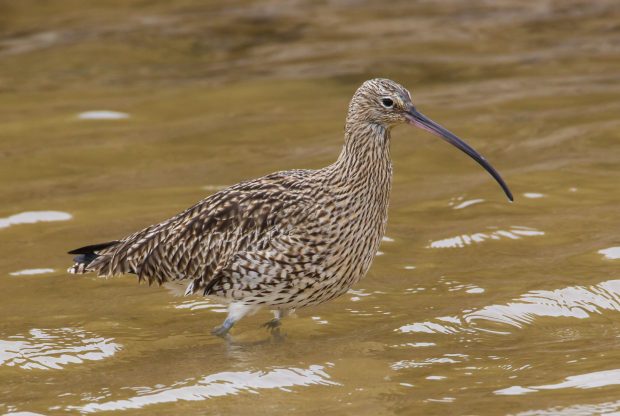
There is positive coverage this morning on Gloucestershire Live of a Natural England-supported initiative to rescue curlew eggs from RAF airbases.
Dozens of curlew eggs have been saved from RAF airfields as part of first ever united effort between wildlife charity WWT, the Ministry of Defence and Natural England to boost numbers of this iconic bird in parts of lowland Britain.
The eggs are transported to WWT Slimbridge in Gloucestershire to be hand-reared and released into the Severn Vale. It’s hoped the new curlews will help to recover the fragile population in the area.
Curlew numbers in the UK have declined by 60% over the past 30 years. While numbers are slightly healthier in the uplands of northern England and Scotland, in southern England, Wales and Ireland, only hundreds of pairs remain.
Natural England’s Chair, Tony Juniper CBE said:
In many parts of England the Curlew is now very scarce and if their decline continues there is a real danger that in the future people will not be able to enjoy these wonderful birds.
“Releasing captive-reared Curlews to areas where they have disappeared, while at the same time helping to ensure airfield safety, is an example of the kind of positive partnership that we know is needed if we are to reverse the declining fortunes of many of our wildlife species.
Nigel Jarrett, Head of Conservation Breeding at WWT, said:
It’s an exciting opportunity for everyone involved. On one hand, curlews at East Anglian air bases pose a potential risk to aviation but on the other hand they have the potential to help their struggling cousins in the South West.
Unfortunately time is not on our side but by babysitting these chicks until they can fly, we can help encourage a new generation of British curlews in the lowlands.
An MoD spokesperson said:
Fast-jet airfields are carefully managed to deter large and flocking birds and reduce the risk of bird-strike, but curlews seem very keen to nest on them in East Anglia, probably due to perceived safety from predators and lack of other suitable habitats in the landscape. The MOD and its contractors are very happy to support this ‘pilot project’ and to contribute to the conservation of this iconic species.
Read the full story on the Wildlife and Wetlands Trust’s website.
2 comments
Comment by A Mitcheson posted on
On the northern fells where I live, the curlew nests have been badly hit by crow predation - as have other waders. This is mainly due to all crow control ceasing - following the general license debacle. The crow numbers are just too great and their young will swell the population more over the next few days. They are also becoming more bold and less shy of human disturbance. Magpies and jackdaws are becoming very common here also. When will we get a workable ‘fit for purpose’ general license to protect our vulnerable species? Great effort re the RAF air bases - but this is ‘fiddling while Roam burns’.
Comment by Adrian Layen posted on
Great news, its good to see various departments and parts of our military working together. However I wonder how the revokation of the general licences back in April will impact the curlew numbers this year? Only time will tell.